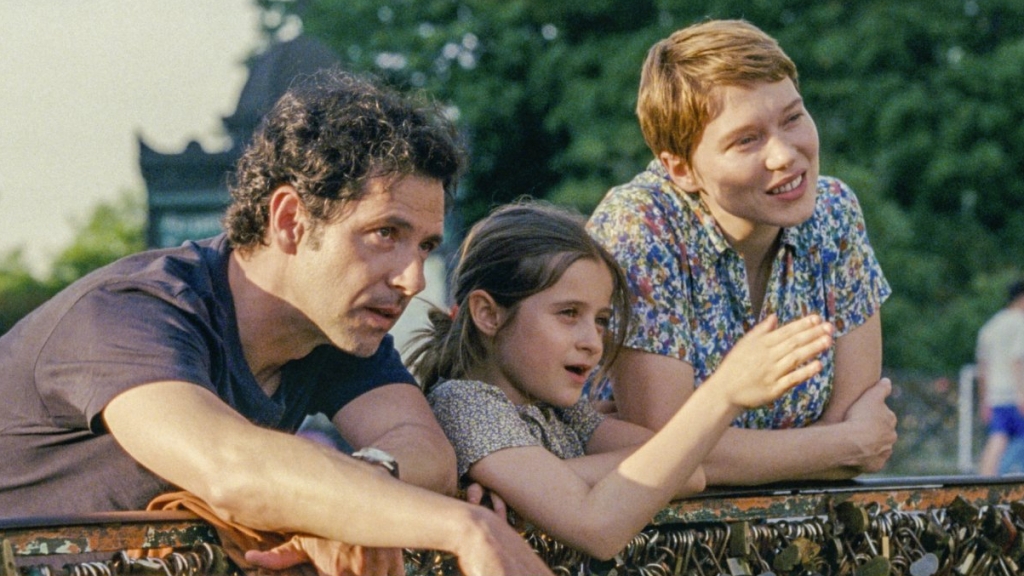Note: The following is a reworked and expanded version of a review I left on my Letterboxd profile for this film. Also, spoilers ahead (though I think this film is more of something to be experienced and not about the plot itself)
Un Beau Matin (also released as One Fine Morning) is a romantic drama that follows Sandra Kienzler, a single mother and the daughter of a well respected philosophy professor. It revolves around her romantic life and her taking care of her her father, Georg, who has a neurodegenerative disease condition named Benson’s syndrome, which has robbed him of his sight and his cognition.
In just under two hours, Mia Hansen-Løve paints a delicately paced portrait of what it’s like to lose somebody close to you. For our widowed protagonist, loss isn’t so much an event that has transpired as it is a state of being. We watch depersonalization overtake her as her father succumbs to his illness–we see reconnect with a friend of her late husband and struggle through an affair with him. Everything that happens in the film ties into the idea of the self, and how easy it is to lose sight of it and yourself.
People run away from their problems, and this movie hammers that in for us every chance it gets. Whether it’s Sandra’s mother saying that she has blacked out every memory of her own daughters’ childhoods because she didn’t love their father, or the aforementioned father saying that Schubert is ‘no longer for [him]’, you can tangibly feel how it tears our lead up inside. More so, you can see how she doesn’t realize she’s doing the same thing in her own way when she refuses to call social workers back, or hold onto more of her dad’s belongings. At it’s core, Un Beau Matin is about feeling paralyzed by the weight of the world and how people strive to do their best with what they’ve got.
And to me, the answer Un Beau Matin offers for those going through what the Sandra’s of the world are experiencing is to allow others to help us and to offer to help others. A recurrent idea in the film was how many of our relationships (be it parental or romantic) are probably in a state of decay somewhere, and how the only thing we can do when we realize it is try to stay by each others side through it. Even when our parents are so gone that their books are more representative of them than they themselves are, or if it’s with a married man. Life is complicated and full of gray; the film isn’t designed for us to pass judgement on the characters–nor is it designed to have a neat, tidy ending.

The greatest interest that the film exhibits is a regard for reality; it permeates through every frame of the film from the lack of intricate staging to the naturalistic lighting, rich and textured use of grain, and the weaving of soft, gentle music throughout its runtime.
As the title suggests, Un Beau Matin (Which, need I remind you was localized as One Fine Morning but can literally be translated as A Beautiful Morning) ends with a reprieve, not a solution. We leave the characters with a deep breath before they walk right back into their messy, human lives.


Leave a comment